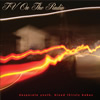 Young Liars, released this past summer, was an intoxicating shotof dark, precise sound; at once both deeply passionate and eerilychilly, the product of a gospel choral that had lost its way andpreferred to creep out unsuspecting subway riders rather than bask inany holy warmth. While that EP showcased a few densely packed tracks,their new LP finds that intensity strung across a larger canvas,changing the shape and color into something that asks for more patienceand observation. "The Wrong Way" is a charmer, thudding along withsoupy bass and percussion as baritone and alto saxophones bleat andsupport the vocal harmonies of the three members, which sound like asnapping ragtime chorus, full bodied and drawling. Though the musicalfoundation is simple and loopy, it serves as a perfect background forthe expressive vocals that rise and fall with bursts of energy, beggingfor the pews to raise their hands and chime in. "Ambulance" eschews anykind of pretense that Tunde Adebimpe's vocals are not the core of thisband's power, dropping the fuzzy noise collages for an acapellaexcursion. Adebimpe's breathy triplets on the song's chorus of "I /will be / your / ac / ci / dent / if you / will be / my am / bu /lance," caress every syllable, giving them each proper considerationbefore spilling them out in his smooth baritone. Unfortunately, theslower tracks, like "Don't Love You," lack the amorphous, ephemeralquality that made "Blind" from their past EP such a spooky, alluringlisten. Where before a lurch was arresting, visceral, here they areclumsy and cautious. "Poppy" suffers from a relatively banal guitarriff that comprises the bulk of the track. While this is hardly enoughto invalidate any interest in Desperate Youth, Bloodthirsty Babes,it is indicative that the group finds themselves searching for the nextstep, the next mode for their sound. "Bomb Yourself" finds thosebrilliant harmonies sprawling across a bass heavy, dub-inflected bed,capturing a deep groove. The raw quality of TV on the Radio's energy,and their recklessly experimental tendencies make listening to everynook and cranny of their tinkered sound interesting, and hints at evenmore dramatic pieces in the future.
Young Liars, released this past summer, was an intoxicating shotof dark, precise sound; at once both deeply passionate and eerilychilly, the product of a gospel choral that had lost its way andpreferred to creep out unsuspecting subway riders rather than bask inany holy warmth. While that EP showcased a few densely packed tracks,their new LP finds that intensity strung across a larger canvas,changing the shape and color into something that asks for more patienceand observation. "The Wrong Way" is a charmer, thudding along withsoupy bass and percussion as baritone and alto saxophones bleat andsupport the vocal harmonies of the three members, which sound like asnapping ragtime chorus, full bodied and drawling. Though the musicalfoundation is simple and loopy, it serves as a perfect background forthe expressive vocals that rise and fall with bursts of energy, beggingfor the pews to raise their hands and chime in. "Ambulance" eschews anykind of pretense that Tunde Adebimpe's vocals are not the core of thisband's power, dropping the fuzzy noise collages for an acapellaexcursion. Adebimpe's breathy triplets on the song's chorus of "I /will be / your / ac / ci / dent / if you / will be / my am / bu /lance," caress every syllable, giving them each proper considerationbefore spilling them out in his smooth baritone. Unfortunately, theslower tracks, like "Don't Love You," lack the amorphous, ephemeralquality that made "Blind" from their past EP such a spooky, alluringlisten. Where before a lurch was arresting, visceral, here they areclumsy and cautious. "Poppy" suffers from a relatively banal guitarriff that comprises the bulk of the track. While this is hardly enoughto invalidate any interest in Desperate Youth, Bloodthirsty Babes,it is indicative that the group finds themselves searching for the nextstep, the next mode for their sound. "Bomb Yourself" finds thosebrilliant harmonies sprawling across a bass heavy, dub-inflected bed,capturing a deep groove. The raw quality of TV on the Radio's energy,and their recklessly experimental tendencies make listening to everynook and cranny of their tinkered sound interesting, and hints at evenmore dramatic pieces in the future.  Young Liars, released this past summer, was an intoxicating shotof dark, precise sound; at once both deeply passionate and eerilychilly, the product of a gospel choral that had lost its way andpreferred to creep out unsuspecting subway riders rather than bask inany holy warmth. While that EP showcased a few densely packed tracks,their new LP finds that intensity strung across a larger canvas,changing the shape and color into something that asks for more patienceand observation. "The Wrong Way" is a charmer, thudding along withsoupy bass and percussion as baritone and alto saxophones bleat andsupport the vocal harmonies of the three members, which sound like asnapping ragtime chorus, full bodied and drawling. Though the musicalfoundation is simple and loopy, it serves as a perfect background forthe expressive vocals that rise and fall with bursts of energy, beggingfor the pews to raise their hands and chime in. "Ambulance" eschews anykind of pretense that Tunde Adebimpe's vocals are not the core of thisband's power, dropping the fuzzy noise collages for an acapellaexcursion. Adebimpe's breathy triplets on the song's chorus of "I /will be / your / ac / ci / dent / if you / will be / my am / bu /lance," caress every syllable, giving them each proper considerationbefore spilling them out in his smooth baritone. Unfortunately, theslower tracks, like "Don't Love You," lack the amorphous, ephemeralquality that made "Blind" from their past EP such a spooky, alluringlisten. Where before a lurch was arresting, visceral, here they areclumsy and cautious. "Poppy" suffers from a relatively banal guitarriff that comprises the bulk of the track. While this is hardly enoughto invalidate any interest in Desperate Youth, Bloodthirsty Babes,it is indicative that the group finds themselves searching for the nextstep, the next mode for their sound. "Bomb Yourself" finds thosebrilliant harmonies sprawling across a bass heavy, dub-inflected bed,capturing a deep groove. The raw quality of TV on the Radio's energy,and their recklessly experimental tendencies make listening to everynook and cranny of their tinkered sound interesting, and hints at evenmore dramatic pieces in the future.
Young Liars, released this past summer, was an intoxicating shotof dark, precise sound; at once both deeply passionate and eerilychilly, the product of a gospel choral that had lost its way andpreferred to creep out unsuspecting subway riders rather than bask inany holy warmth. While that EP showcased a few densely packed tracks,their new LP finds that intensity strung across a larger canvas,changing the shape and color into something that asks for more patienceand observation. "The Wrong Way" is a charmer, thudding along withsoupy bass and percussion as baritone and alto saxophones bleat andsupport the vocal harmonies of the three members, which sound like asnapping ragtime chorus, full bodied and drawling. Though the musicalfoundation is simple and loopy, it serves as a perfect background forthe expressive vocals that rise and fall with bursts of energy, beggingfor the pews to raise their hands and chime in. "Ambulance" eschews anykind of pretense that Tunde Adebimpe's vocals are not the core of thisband's power, dropping the fuzzy noise collages for an acapellaexcursion. Adebimpe's breathy triplets on the song's chorus of "I /will be / your / ac / ci / dent / if you / will be / my am / bu /lance," caress every syllable, giving them each proper considerationbefore spilling them out in his smooth baritone. Unfortunately, theslower tracks, like "Don't Love You," lack the amorphous, ephemeralquality that made "Blind" from their past EP such a spooky, alluringlisten. Where before a lurch was arresting, visceral, here they areclumsy and cautious. "Poppy" suffers from a relatively banal guitarriff that comprises the bulk of the track. While this is hardly enoughto invalidate any interest in Desperate Youth, Bloodthirsty Babes,it is indicative that the group finds themselves searching for the nextstep, the next mode for their sound. "Bomb Yourself" finds thosebrilliant harmonies sprawling across a bass heavy, dub-inflected bed,capturing a deep groove. The raw quality of TV on the Radio's energy,and their recklessly experimental tendencies make listening to everynook and cranny of their tinkered sound interesting, and hints at evenmore dramatic pieces in the future. 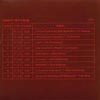 FT is for Folktales, a series of three sets of three 3"CDs that Crouton has released over recent years, each disc devoted to asingle artist of electroacoustic, experimental electronic, or impovorientation. For a finale, this full-length disc finds Tietchens'remixing all three triptychs, producing nine individual tracks, each apredictably drastic reinterpretation of its source disc. While the "+"might suggest a thickening of each track into the kind of throbbing,gray industro-ambiance that made Tietchens' name the mark of quality ontoo many lost cassette comps from decades past, his approach here ismuch more subtractive, closer to the brutally minimal, ascetictechnique begun somewhere around the more recent Menge series.The new mixes reduce nearly every track to a widely-scattered array ofsound fragments, never slipping into glitch-like impressionism, ratherworking through a pensive, reserved process of manipulation, eachcompressed or bloated bit of sound dust given ample, isolated space.Tietchens seems intent on discovering (or creating), in each piece,those moments which stare blankly back from the disc's digital sheen,which appear absent of any relation to the whole yet arrive with acryptic, almost mocking air. The artist has always kept his dark, wilysense of humor in the background of his releases (often highlighted bya E.M. Cioran aphorism or two), and this disc is no exception. The jokehere, for me at least, is that Tietchens is, more than ever, toyingwith the idea of creating music where human touch has absolutely nosignificance. The punch line comes with the realization that Tietchensis remixing others' compositions, making his job necessarily harder. Each disc in the original Folktalesseries was conceptualized around the idea of narrative, with thevarious artists essentially telling stories through sound, makingTietchens accomplishment, though idiosyncratic itself, an effectiveerasure of the others' storytelling. His reconstructions could not bemore remote; I'm even wary of using an adjective like "cold" for fearof suggesting that anything atmospheric emerges. The minisculecrunches, warped thuds, and deadened hums that become windows into theoriginal recordings do allow for glimpses into the unique flowand sonorous quality of each, however Tietchens displays a tested skillfor introducing shards of melody or motion while almost simultaneouslyenacting their disappearance. It's as if wrapped up in each stuntedswell, each vestige of previous creator and previous completion, isevidence of a fundamental insubstantiality. The artist's talents aremost remarkable when applied to the coarse saxophone and violincompositions from Bhob Rainey and Dan Warburton. Tietchens is able toretain the distinctiveness of each instrument, even allowing for a fewmelodic intervals to take shape, but he completely rejects any of thepersonality that comes with such age-old devices, turning them on anangle that emphasizes only their existence as machines, simpleconveyances of empty sound. While on paper the artist's modus operandihas all the charm of a night spent sleeping on a board, rest assuredthat Tietchens does not let the potential for enjoyment slip throughthe cracks. He understands the audacity of his place within the littlecharade he's created and takes care to make the results more appealingthan FT+'s faux-laboratory chart cover would indicate. This ismerely Tietchens as E.M. Cioran's fatalistic hero, playing theinvisible hand of time, sweeping the folklore to the hens with a smileon his face.
FT is for Folktales, a series of three sets of three 3"CDs that Crouton has released over recent years, each disc devoted to asingle artist of electroacoustic, experimental electronic, or impovorientation. For a finale, this full-length disc finds Tietchens'remixing all three triptychs, producing nine individual tracks, each apredictably drastic reinterpretation of its source disc. While the "+"might suggest a thickening of each track into the kind of throbbing,gray industro-ambiance that made Tietchens' name the mark of quality ontoo many lost cassette comps from decades past, his approach here ismuch more subtractive, closer to the brutally minimal, ascetictechnique begun somewhere around the more recent Menge series.The new mixes reduce nearly every track to a widely-scattered array ofsound fragments, never slipping into glitch-like impressionism, ratherworking through a pensive, reserved process of manipulation, eachcompressed or bloated bit of sound dust given ample, isolated space.Tietchens seems intent on discovering (or creating), in each piece,those moments which stare blankly back from the disc's digital sheen,which appear absent of any relation to the whole yet arrive with acryptic, almost mocking air. The artist has always kept his dark, wilysense of humor in the background of his releases (often highlighted bya E.M. Cioran aphorism or two), and this disc is no exception. The jokehere, for me at least, is that Tietchens is, more than ever, toyingwith the idea of creating music where human touch has absolutely nosignificance. The punch line comes with the realization that Tietchensis remixing others' compositions, making his job necessarily harder. Each disc in the original Folktalesseries was conceptualized around the idea of narrative, with thevarious artists essentially telling stories through sound, makingTietchens accomplishment, though idiosyncratic itself, an effectiveerasure of the others' storytelling. His reconstructions could not bemore remote; I'm even wary of using an adjective like "cold" for fearof suggesting that anything atmospheric emerges. The minisculecrunches, warped thuds, and deadened hums that become windows into theoriginal recordings do allow for glimpses into the unique flowand sonorous quality of each, however Tietchens displays a tested skillfor introducing shards of melody or motion while almost simultaneouslyenacting their disappearance. It's as if wrapped up in each stuntedswell, each vestige of previous creator and previous completion, isevidence of a fundamental insubstantiality. The artist's talents aremost remarkable when applied to the coarse saxophone and violincompositions from Bhob Rainey and Dan Warburton. Tietchens is able toretain the distinctiveness of each instrument, even allowing for a fewmelodic intervals to take shape, but he completely rejects any of thepersonality that comes with such age-old devices, turning them on anangle that emphasizes only their existence as machines, simpleconveyances of empty sound. While on paper the artist's modus operandihas all the charm of a night spent sleeping on a board, rest assuredthat Tietchens does not let the potential for enjoyment slip throughthe cracks. He understands the audacity of his place within the littlecharade he's created and takes care to make the results more appealingthan FT+'s faux-laboratory chart cover would indicate. This ismerely Tietchens as E.M. Cioran's fatalistic hero, playing theinvisible hand of time, sweeping the folklore to the hens with a smileon his face. 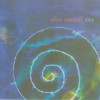 Ora was Andrew Chalk and Darren Tate with Jonathan Coleclough, Lol Coxhill, Colin Potter, and Daisuke Suzuki. Final, released in 2002, was to be this group's final album, but there were five pieces that never made it to that record because they had been lost; After Rainfall collects those five pieces and, with varying degrees of success, shuts the door on Ora.
Ora was Andrew Chalk and Darren Tate with Jonathan Coleclough, Lol Coxhill, Colin Potter, and Daisuke Suzuki. Final, released in 2002, was to be this group's final album, but there were five pieces that never made it to that record because they had been lost; After Rainfall collects those five pieces and, with varying degrees of success, shuts the door on Ora.
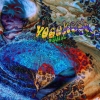 The artwork says it all here, as those unfamiliar with Vocokesh cantell right away what's inside: an obsession with psychedelic guitarrock and a twisting of genres. That it is as strange as it is but stillmakes an impact is truly an accomplishment, in my opinion, because ithas the ability to estrange people at its very core. With no vocals tospeak of, and a decided lack of structure here and there, some wouldlose interest even though the quality of the playing is of the highestcaliber. This is something not foreign to Vocokesh's mad scientistRichard Franecki considering his experiences in F/i, and this fourthalbum from his subsequent project is their most expansive, mostglorious, and finest yet. The album is a bit of a tribute to some ofFranecki's favorite cult films from Michaelangelo Antonioni andAlejandro Jodorowsky, with Vocokesh composing music that could havebeen used as the soundtrack. Even the tracks not ear-marked for thispurpose have a cinematic quality, though, where you can imagine theaction going on while the song is being played. Loud processed guitarsthat wail and screech meet with synthesizers and other electronics plusheavy drumming to produce a wall of sound that could destroy entirecities. The album comes in like a lamb, though, with the title track'sgentle acoustic strumming meeting with some distorted guitar and synthsin an almost flamenco style and a bit of minor key. But then thefifteen-minute crushing blow begins, and "Love Theme From El Topo"struts across the headphones. Loud feedback, dirty solos, kickdrum-heavy rhythms and delay make a delicious smorgasbord, even thoughit never leaves a given area, seeming to meander in the same space. Nomatter: it's still gorgeous, like a composition written by Miles Davisand performed by Hendrix on guitar. It's got that swing, baby, but Iwouldn't turn it up too loud cause the ears'll bleed. That's theblueprint, and though the melodies and chords change, there ain't a lotof variation. I still loved every minute of it, and I'm more than surethat any lover of experimental psych rock will, too.
The artwork says it all here, as those unfamiliar with Vocokesh cantell right away what's inside: an obsession with psychedelic guitarrock and a twisting of genres. That it is as strange as it is but stillmakes an impact is truly an accomplishment, in my opinion, because ithas the ability to estrange people at its very core. With no vocals tospeak of, and a decided lack of structure here and there, some wouldlose interest even though the quality of the playing is of the highestcaliber. This is something not foreign to Vocokesh's mad scientistRichard Franecki considering his experiences in F/i, and this fourthalbum from his subsequent project is their most expansive, mostglorious, and finest yet. The album is a bit of a tribute to some ofFranecki's favorite cult films from Michaelangelo Antonioni andAlejandro Jodorowsky, with Vocokesh composing music that could havebeen used as the soundtrack. Even the tracks not ear-marked for thispurpose have a cinematic quality, though, where you can imagine theaction going on while the song is being played. Loud processed guitarsthat wail and screech meet with synthesizers and other electronics plusheavy drumming to produce a wall of sound that could destroy entirecities. The album comes in like a lamb, though, with the title track'sgentle acoustic strumming meeting with some distorted guitar and synthsin an almost flamenco style and a bit of minor key. But then thefifteen-minute crushing blow begins, and "Love Theme From El Topo"struts across the headphones. Loud feedback, dirty solos, kickdrum-heavy rhythms and delay make a delicious smorgasbord, even thoughit never leaves a given area, seeming to meander in the same space. Nomatter: it's still gorgeous, like a composition written by Miles Davisand performed by Hendrix on guitar. It's got that swing, baby, but Iwouldn't turn it up too loud cause the ears'll bleed. That's theblueprint, and though the melodies and chords change, there ain't a lotof variation. I still loved every minute of it, and I'm more than surethat any lover of experimental psych rock will, too.  This rapturous disc is the result of a live improvisation conducted under an aqueduct in Zürich, a 40-foot-tall acoustic space that perfectly matches Momentan's simulation of poised ebb and flow. Not standard microsound fair, of minimal movement or painfully obsessive blip-bending, the piece ingests each members' contribution, Korber's threadbare guitar scratch, Müller's increasingly spartan percussive manipulations, and Steinbrüchel's grainy drone cycles, lifting all in an undulant, misty passage across the broad hollow, action that plays perfectly on the disc's punning title.
This rapturous disc is the result of a live improvisation conducted under an aqueduct in Zürich, a 40-foot-tall acoustic space that perfectly matches Momentan's simulation of poised ebb and flow. Not standard microsound fair, of minimal movement or painfully obsessive blip-bending, the piece ingests each members' contribution, Korber's threadbare guitar scratch, Müller's increasingly spartan percussive manipulations, and Steinbrüchel's grainy drone cycles, lifting all in an undulant, misty passage across the broad hollow, action that plays perfectly on the disc's punning title.
 There are several disappointing things about the new Lycia album:mainly the fact that it is also their last album together, as the banddisbanded before finalizing the release. Also, it's a bit short — dueto the band implosion, too, I suppose — even though most songs areright around the five-minute mark. At nine tracks, there just seems tobe something lacking as a defining end statement for this passionateand powerful band that no doubt influenced many, including those atSilber Records, who have been so moved by Lycia that they refer to themas mentors. However, beyond the effects the end of the band had ontheir final recordings, these songs are what many have come to expectfrom this group since their first album in 1989. In fact, Empty Spacemarks a bit of a return to their birth, with original member John Fairrejoining the fold for some drum programming and the whole soundreturning to their post-punk roots. With the old, though, there's alsoa renewed love for pop structure about these songs, like Lycia wasstriving to find a perfect mix of their different albums over theyears. Instrumental tracks make up about half of the record, as well,and though it's entirely possible that they were always meant to bethat way, it still feels like vocals could sit right on top of them.Standard industrial and goth-type effects and sound qualities spill outof the speakers on every track; Mike VanPortfleet has his vocals buriedin the mix for the most part, and Tara Vanflower's otherworldly vocalscharm and disarm as ever. There are some amazing melodies on thisrecord, with an overwhelming feeling of foreboding doom. While it'sunpolished and each song has at least a two second pregap it's stillenough for this to rank up there as one of their finer works, and giventhat the album was supposed to be released four years ago, it's goodthat the songs are making their way out there to true fans now. It's ashame that there'll be no more after this from Lycia, but it's atremendous reminder of how easy it was for them to move their audience.
There are several disappointing things about the new Lycia album:mainly the fact that it is also their last album together, as the banddisbanded before finalizing the release. Also, it's a bit short — dueto the band implosion, too, I suppose — even though most songs areright around the five-minute mark. At nine tracks, there just seems tobe something lacking as a defining end statement for this passionateand powerful band that no doubt influenced many, including those atSilber Records, who have been so moved by Lycia that they refer to themas mentors. However, beyond the effects the end of the band had ontheir final recordings, these songs are what many have come to expectfrom this group since their first album in 1989. In fact, Empty Spacemarks a bit of a return to their birth, with original member John Fairrejoining the fold for some drum programming and the whole soundreturning to their post-punk roots. With the old, though, there's alsoa renewed love for pop structure about these songs, like Lycia wasstriving to find a perfect mix of their different albums over theyears. Instrumental tracks make up about half of the record, as well,and though it's entirely possible that they were always meant to bethat way, it still feels like vocals could sit right on top of them.Standard industrial and goth-type effects and sound qualities spill outof the speakers on every track; Mike VanPortfleet has his vocals buriedin the mix for the most part, and Tara Vanflower's otherworldly vocalscharm and disarm as ever. There are some amazing melodies on thisrecord, with an overwhelming feeling of foreboding doom. While it'sunpolished and each song has at least a two second pregap it's stillenough for this to rank up there as one of their finer works, and giventhat the album was supposed to be released four years ago, it's goodthat the songs are making their way out there to true fans now. It's ashame that there'll be no more after this from Lycia, but it's atremendous reminder of how easy it was for them to move their audience. The artists have, thankfully, chosen cover art and title which testifyto these performances occurring at locations on the surface of theEarth, the Southern U.S. no less, instead of in some forgotten fissureof the planet's crust or from the edge of an astral plane, far, far inthe distance as the music would suggest. The 10" contains two sidelongselections from stops along a small duo tour in 2001. Gross, whoalongside Greg Kelley and Bhob Rainey has helped put the Boston improvscene on the map, commissioned Tonne's exploratory vocal talents forthe tour, following a single, fruitful collaboration earlier that year.The reeds-man's impulsiveness does not disappoint, as his increasinglybizarre, limit-crossing assault on sax and clarinet finds a perfectcounterpart in his companion's strained pipes. Much of Gross' playingfocuses on a baffling expansion of the sounds and textures available toa particular instrument. His blowing reaches squealing pitches thatbelong to the ambiance of the motorway or factory space, his lowwarbles and grating trills enough to transform every hair on the bodyinto a lightning rod. Most impressive, though, are his extended boutsof pushing note-less air through the saxophone, creating completelyalien whistles, scrapes, and dry rustles. In short, his is eye-popping,head-rushing, and blood-quickening music that must be heard to bebelieved. Tonne's contribution is equally arresting. The vocalist'sattunement to the nuance and textured rise-and-fall of Gross' playingis remarkable, her voice rising to match the most challenging pitchesor inhuman bits of vibrato. The tendency to mistake one musician forthe other is a risk even after hearing the record several times, aphenomenon that fills the listening experience with frequent moments ofutter disbelief. Tonne builds gliding, theremin-like tones, archingmasterfully into frightening high-pitched shrieks and lowly half-moanswith clear precedent in artists like Diamanda Galas or the venerablePatty Waters. Her most unique talent, however, is the incorporation offoreign syllabic utterances, a kind of glossolalian scat spread acrossGross' varied landscape with enough restraint to keep it wondrouslyeffective. The vocal style brings a subtle degree of future-primitivismto the pieces, recalling the free-calligraphy techniques used by manyAbstract Expressionist painters. My only complaint is that this releasewas not expanded to 12" or full length CD; both pieces fade out withthe wish that at least the room ambiance or a bit of Gross' clappingair-holes might continue long enough to inspire Tonne to swoop backinto song. I can only hope that the duo was pleased enough with theseinitial excursions to take more, soon.
The artists have, thankfully, chosen cover art and title which testifyto these performances occurring at locations on the surface of theEarth, the Southern U.S. no less, instead of in some forgotten fissureof the planet's crust or from the edge of an astral plane, far, far inthe distance as the music would suggest. The 10" contains two sidelongselections from stops along a small duo tour in 2001. Gross, whoalongside Greg Kelley and Bhob Rainey has helped put the Boston improvscene on the map, commissioned Tonne's exploratory vocal talents forthe tour, following a single, fruitful collaboration earlier that year.The reeds-man's impulsiveness does not disappoint, as his increasinglybizarre, limit-crossing assault on sax and clarinet finds a perfectcounterpart in his companion's strained pipes. Much of Gross' playingfocuses on a baffling expansion of the sounds and textures available toa particular instrument. His blowing reaches squealing pitches thatbelong to the ambiance of the motorway or factory space, his lowwarbles and grating trills enough to transform every hair on the bodyinto a lightning rod. Most impressive, though, are his extended boutsof pushing note-less air through the saxophone, creating completelyalien whistles, scrapes, and dry rustles. In short, his is eye-popping,head-rushing, and blood-quickening music that must be heard to bebelieved. Tonne's contribution is equally arresting. The vocalist'sattunement to the nuance and textured rise-and-fall of Gross' playingis remarkable, her voice rising to match the most challenging pitchesor inhuman bits of vibrato. The tendency to mistake one musician forthe other is a risk even after hearing the record several times, aphenomenon that fills the listening experience with frequent moments ofutter disbelief. Tonne builds gliding, theremin-like tones, archingmasterfully into frightening high-pitched shrieks and lowly half-moanswith clear precedent in artists like Diamanda Galas or the venerablePatty Waters. Her most unique talent, however, is the incorporation offoreign syllabic utterances, a kind of glossolalian scat spread acrossGross' varied landscape with enough restraint to keep it wondrouslyeffective. The vocal style brings a subtle degree of future-primitivismto the pieces, recalling the free-calligraphy techniques used by manyAbstract Expressionist painters. My only complaint is that this releasewas not expanded to 12" or full length CD; both pieces fade out withthe wish that at least the room ambiance or a bit of Gross' clappingair-holes might continue long enough to inspire Tonne to swoop backinto song. I can only hope that the duo was pleased enough with theseinitial excursions to take more, soon.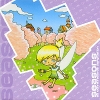 Concept albums in general are a bit troublesome. Like "Music from and inspired by the motion picture," they are sometimes not at all relatable to the subject at hand, and often they get overshadowed by some lofty sense of purpose that ultimately falls flat. When I saw the roster on Seasons, I was willing to ignore the fact that the compilation was a concept album just to hear new work from these bands. So, I must say I was pleasantly surprised to find that the music does, in fact, have a fine correlation with the concept, making this the best theme-based compilation I have ever heard.
Concept albums in general are a bit troublesome. Like "Music from and inspired by the motion picture," they are sometimes not at all relatable to the subject at hand, and often they get overshadowed by some lofty sense of purpose that ultimately falls flat. When I saw the roster on Seasons, I was willing to ignore the fact that the compilation was a concept album just to hear new work from these bands. So, I must say I was pleasantly surprised to find that the music does, in fact, have a fine correlation with the concept, making this the best theme-based compilation I have ever heard.
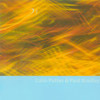 Anxiety and apprehension are made sound incarnate within the firstquarter of this record and holy ground is consecrated and threatenedthereafter. A narrative runs through the thick, pulsing heart of thesesounds; beginning with shimmering, metallic rolls of lightning andhighligthed by the mysterious calls of nocturnal birds, Behind Your Very Eyesannounces itself as a heavy and imposing experience. The opening"Cryptozoology" has the blood of fear running through it; theatmosphere is thick with the tension of unseen voyeurs and rapacioushunters whispering secrets under forested moonlight. Such a heavy andconsuming beginning might seem imposing, but Colin Potter and PaulBradley make the mystery too intriguing to be ignored. It would beimpossible to turn tail and run. "Decline" medicates and softens thebreath of impending disaster with its organ-like tones and unearthlyshakings. There is a bright light at the center of its being and iteminates the presence of safety and familiarity; it's as if the nightof the first sounds has been transformed into the romantic and alluringnight of summer winds and cricket's voices. But the narrative of themusic is not simple and elegant transformation: "Cavity" invokes theaura of a total void, staring down into the abyss, and being frightenedthat nothing looks back. No semblance of human life is found in thecascading mass and it's low-end humming simply shakes my body to anumbness that removes the physical world to a purely mental state. Thebeauty of Potter and Bradley's work is that it removes easy reference;sounds become pure and without linguistic characteristic and there isalways an environment shaped out of silence. By the time "Flattered ToDeceive" expels its suspended ghost, the music has made a full circle.The electronic whines and textural brushes of sound reverberate backinto the mystery of the unknown and demand another journey; thenear-deceptive warmth of these sounds is Behind Your Very Eyes'greatest asset. Though alien and without translatable elements, itexpands and welcomes the mind to a consideration of the esoteric.
Anxiety and apprehension are made sound incarnate within the firstquarter of this record and holy ground is consecrated and threatenedthereafter. A narrative runs through the thick, pulsing heart of thesesounds; beginning with shimmering, metallic rolls of lightning andhighligthed by the mysterious calls of nocturnal birds, Behind Your Very Eyesannounces itself as a heavy and imposing experience. The opening"Cryptozoology" has the blood of fear running through it; theatmosphere is thick with the tension of unseen voyeurs and rapacioushunters whispering secrets under forested moonlight. Such a heavy andconsuming beginning might seem imposing, but Colin Potter and PaulBradley make the mystery too intriguing to be ignored. It would beimpossible to turn tail and run. "Decline" medicates and softens thebreath of impending disaster with its organ-like tones and unearthlyshakings. There is a bright light at the center of its being and iteminates the presence of safety and familiarity; it's as if the nightof the first sounds has been transformed into the romantic and alluringnight of summer winds and cricket's voices. But the narrative of themusic is not simple and elegant transformation: "Cavity" invokes theaura of a total void, staring down into the abyss, and being frightenedthat nothing looks back. No semblance of human life is found in thecascading mass and it's low-end humming simply shakes my body to anumbness that removes the physical world to a purely mental state. Thebeauty of Potter and Bradley's work is that it removes easy reference;sounds become pure and without linguistic characteristic and there isalways an environment shaped out of silence. By the time "Flattered ToDeceive" expels its suspended ghost, the music has made a full circle.The electronic whines and textural brushes of sound reverberate backinto the mystery of the unknown and demand another journey; thenear-deceptive warmth of these sounds is Behind Your Very Eyes'greatest asset. Though alien and without translatable elements, itexpands and welcomes the mind to a consideration of the esoteric.  This is Rabelais' third release using Argeiphontes Lyre, software ofthe artist's own design which runs instrumental sound through agauntlet of time domain filters, resulting in unique digital music thatretains much of the physicality and tender imbalance of its soundsource whilst enacting subtle, though deeply resonant transformations.His previous record, the excellent Eisoptrophobia, featured processed piano works by Bartók and Satie, and ...benediction, drawcontinues with a similar exploration of the latter's idea of "furnituremusic," this time with Rabelais' own guitar compositions run throughthe forgiving machine. The resulting 71-min. piece, essentially dividedinto eight sections, is most certainly the kind of inconspicuous,sublimated work that Satie's doctrine would promote. The originalguitar lines are completely obscured, disintegrating (ormultiplying...who knows?) into creeping waves of tonal flutter, theshivering patter of half-plucked strings, and faint, drone-likebackdrops that sound like the result of fairly extreme time-lapsemanipulation. The relative sameness and level field of each track make ...benediction, drawhard to penetrate at first, and the meandering movement of the piececould be off-putting for the unprepared. However, deeper listeningreveals the remarkably intricate construction of the work, which,rather than retreating to the background, instead completely transformsthe listening environment. Rabelais understands that Satie's ideas donot predict music that is just another piece of room-filler, but musicwhose structure and passage feel determined by the acoustic quality ofthe sounds themselves, music that becomes, to some degree, a room ofits own. Rabelais' guitar emerges from the Lyre sounding like a25-piece ensemble of brushed guitars, chimes, and hammered bells,passing slowly through a cycle that seems immediately incidental, yetpainfully timed and integrated so that no such group could havepossibly arranged it. Digital manipulation is evident, but the sound ofthe instrument, which Rabelais' claims to have recorded withoutmulti-tracking (!), is beautifully maintained. A look at the notesinside tells me that ...benediction, draw is dedicated to theartist's "father, who [he] never knew, and mother who abandoned [him];"also, the track titles read sequentially, making two florid sentencesthat describe the journey of a "dispossessed child under the invisibletutelage of an angel." Turns out the record is a reminiscence onRabelais' childhood, growing up estranged on the desolate sweep that isSouth Texas, which explains the cover photo of a boy, presumably theartist, in full Gary Cooper regalia. It's easy to imagine ...benediction, drawas furniture music for the wind-damaged Texan plains; each shimmeringwave full of weightless solemnity, highly expressive but also elusivein character. Comparisons to late-period Morton Feldman, particularly For Philip Guston, would not be out of place; a similar tenebrous beauty stretches through ...benediction, draw'sdrift, making any lapse of attention impossible. With this record,Rabelais has created one of the most singular processed guitar worksI've heard in a long time, and it will be a pleasure hear whichinstrument he approaches next.
This is Rabelais' third release using Argeiphontes Lyre, software ofthe artist's own design which runs instrumental sound through agauntlet of time domain filters, resulting in unique digital music thatretains much of the physicality and tender imbalance of its soundsource whilst enacting subtle, though deeply resonant transformations.His previous record, the excellent Eisoptrophobia, featured processed piano works by Bartók and Satie, and ...benediction, drawcontinues with a similar exploration of the latter's idea of "furnituremusic," this time with Rabelais' own guitar compositions run throughthe forgiving machine. The resulting 71-min. piece, essentially dividedinto eight sections, is most certainly the kind of inconspicuous,sublimated work that Satie's doctrine would promote. The originalguitar lines are completely obscured, disintegrating (ormultiplying...who knows?) into creeping waves of tonal flutter, theshivering patter of half-plucked strings, and faint, drone-likebackdrops that sound like the result of fairly extreme time-lapsemanipulation. The relative sameness and level field of each track make ...benediction, drawhard to penetrate at first, and the meandering movement of the piececould be off-putting for the unprepared. However, deeper listeningreveals the remarkably intricate construction of the work, which,rather than retreating to the background, instead completely transformsthe listening environment. Rabelais understands that Satie's ideas donot predict music that is just another piece of room-filler, but musicwhose structure and passage feel determined by the acoustic quality ofthe sounds themselves, music that becomes, to some degree, a room ofits own. Rabelais' guitar emerges from the Lyre sounding like a25-piece ensemble of brushed guitars, chimes, and hammered bells,passing slowly through a cycle that seems immediately incidental, yetpainfully timed and integrated so that no such group could havepossibly arranged it. Digital manipulation is evident, but the sound ofthe instrument, which Rabelais' claims to have recorded withoutmulti-tracking (!), is beautifully maintained. A look at the notesinside tells me that ...benediction, draw is dedicated to theartist's "father, who [he] never knew, and mother who abandoned [him];"also, the track titles read sequentially, making two florid sentencesthat describe the journey of a "dispossessed child under the invisibletutelage of an angel." Turns out the record is a reminiscence onRabelais' childhood, growing up estranged on the desolate sweep that isSouth Texas, which explains the cover photo of a boy, presumably theartist, in full Gary Cooper regalia. It's easy to imagine ...benediction, drawas furniture music for the wind-damaged Texan plains; each shimmeringwave full of weightless solemnity, highly expressive but also elusivein character. Comparisons to late-period Morton Feldman, particularly For Philip Guston, would not be out of place; a similar tenebrous beauty stretches through ...benediction, draw'sdrift, making any lapse of attention impossible. With this record,Rabelais has created one of the most singular processed guitar worksI've heard in a long time, and it will be a pleasure hear whichinstrument he approaches next. 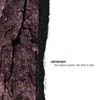 As far as creating atmospherics is concerned, the merging of similarsounds and muddy samples works fine in a simple and amateur way. Thisprinciple cannot be applied to a fifty minute record of unconventionalrecording processes. Nothing leaps out at me in any significant way onthis disc; many of the sounds are intriguing in and of themselves, butthey don't work out when stretched to times well over ten minutes. Ihave a feeling that they wouldn't work out at periods of five or sixminutes. While there are variations in sound and theme on each of thetracks, none of the themes fall into a distinct relationship witheachother and this ends up being unsatisfactory. "Four Chambers PlusTheir Various Fluids" has a great spot near the middle of it thatfeatures the rattling of metal pipes, awkward springs, and bustedpendulums, but it doesn't sync into the rest of the song and emergesfrom the previous section like a young child on stilts. It ultimatelymoves nowhere and returns to silence when covered up by other sounds.On the other hand, "Some Trio Study (#2)" feels as if it belongs in aretirement home; it's a loop of some wonderful melodic samples thatstretch into infinity and change only slightly for the course of fiveminutes. The effect is stunning for the first minute and then themonotony wears thin. The best and the worst is saved for last; "HarborSurfacant" features some stretched and pitch samples of classicinstruments rotating and dying in a mess of pops and claps. It is byfar the most inspiring of the five pieces, but that does not hide thefact that what could've been a journey into the darker realms ofthought ends up sounding more like a damaged toy piano. There's nodynamics at play to keep things interesting for the nine minute runningtime. I just can't sit through it without checking the time to see ifit's over, yet. The sounds are fun here and there, but Vertonen simplycannot come up with an arrangement that stays consistently interesting.
As far as creating atmospherics is concerned, the merging of similarsounds and muddy samples works fine in a simple and amateur way. Thisprinciple cannot be applied to a fifty minute record of unconventionalrecording processes. Nothing leaps out at me in any significant way onthis disc; many of the sounds are intriguing in and of themselves, butthey don't work out when stretched to times well over ten minutes. Ihave a feeling that they wouldn't work out at periods of five or sixminutes. While there are variations in sound and theme on each of thetracks, none of the themes fall into a distinct relationship witheachother and this ends up being unsatisfactory. "Four Chambers PlusTheir Various Fluids" has a great spot near the middle of it thatfeatures the rattling of metal pipes, awkward springs, and bustedpendulums, but it doesn't sync into the rest of the song and emergesfrom the previous section like a young child on stilts. It ultimatelymoves nowhere and returns to silence when covered up by other sounds.On the other hand, "Some Trio Study (#2)" feels as if it belongs in aretirement home; it's a loop of some wonderful melodic samples thatstretch into infinity and change only slightly for the course of fiveminutes. The effect is stunning for the first minute and then themonotony wears thin. The best and the worst is saved for last; "HarborSurfacant" features some stretched and pitch samples of classicinstruments rotating and dying in a mess of pops and claps. It is byfar the most inspiring of the five pieces, but that does not hide thefact that what could've been a journey into the darker realms ofthought ends up sounding more like a damaged toy piano. There's nodynamics at play to keep things interesting for the nine minute runningtime. I just can't sit through it without checking the time to see ifit's over, yet. The sounds are fun here and there, but Vertonen simplycannot come up with an arrangement that stays consistently interesting.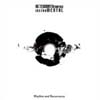 Bill Laswell is trying way too hard. He couldn't decide whether or notthis record was going to be broadcast from Mars, made danceable bysolid rhythms from the past, or infected with the spirit of imaginationand experimentation and this is more than enough to hurt the album. Thereare all sorts of pseudo-melodies winding their way between bass-heavyrhythm sections and musty turntable effects, but none of them stand outor doing anything like create the feel of a hook.Now and then there's a groove established by way of bass guitar andrecord-scratching, but none of them stand out over the other; it's asif every instrument was made to take center stage. This is a solorecord for all heavy and groggy instruments in the court of nothing. Atonce a song can feel like an excursion into Jamaica, a shout out to thebeat-masters of yesterday, and a trip into the drug-fuelled,hallucinogenic march of the future. "Black Dust" is a perfect example;the bass sounds great, the rhythm is heavy and hot, and there's a hintof some exotic instrumentation weaving its way out of the background;but none of these elements ever mix together. They clash like PresidentBush and common sense. The sound of Casio keyboards imitating disco-erahorns don't synch well with the grit and grime of funky rhythms andsumptuous bass pounding. I can appreciate someone who wants to pushboundaries and create new sounds for others to work with, but Laswellsimply isn't doing that or, in the very least, he isn't doing it wellenough. With a mix like this, all of the elements can't work togetherin a perfect unity; something has to be sacrificed (I'd like it if itwere all the faux-psychadelia and space-inspired thematics) for it towork.
Bill Laswell is trying way too hard. He couldn't decide whether or notthis record was going to be broadcast from Mars, made danceable bysolid rhythms from the past, or infected with the spirit of imaginationand experimentation and this is more than enough to hurt the album. Thereare all sorts of pseudo-melodies winding their way between bass-heavyrhythm sections and musty turntable effects, but none of them stand outor doing anything like create the feel of a hook.Now and then there's a groove established by way of bass guitar andrecord-scratching, but none of them stand out over the other; it's asif every instrument was made to take center stage. This is a solorecord for all heavy and groggy instruments in the court of nothing. Atonce a song can feel like an excursion into Jamaica, a shout out to thebeat-masters of yesterday, and a trip into the drug-fuelled,hallucinogenic march of the future. "Black Dust" is a perfect example;the bass sounds great, the rhythm is heavy and hot, and there's a hintof some exotic instrumentation weaving its way out of the background;but none of these elements ever mix together. They clash like PresidentBush and common sense. The sound of Casio keyboards imitating disco-erahorns don't synch well with the grit and grime of funky rhythms andsumptuous bass pounding. I can appreciate someone who wants to pushboundaries and create new sounds for others to work with, but Laswellsimply isn't doing that or, in the very least, he isn't doing it wellenough. With a mix like this, all of the elements can't work togetherin a perfect unity; something has to be sacrificed (I'd like it if itwere all the faux-psychadelia and space-inspired thematics) for it towork.  Those who slip on the Mekons new album as a novice to the band andtheir wiles will no doubt be a bit dumbfounded. Listening to therecord, I could hear countless passages of music that I've heardelsewhere, or something so similar I would swear it was influenced bysomeone else — if I didn't know that these songs were written almost 30years ago and just recently recorded for the release. Punk Rockis a study of a band at their absolute finest, re-embracing musicthey'd written off a quarter-century ago in favor of loftier heightsand bolder experimentations. Maybe all that experience has fed thesesongs, too, as there's a wisened approach to the compositions. Pairedwith the naked aggression and powerhouse vocals is a variedinstrumentation and brave altering of tempo. These songs have a punkheart but their brains are scrambled in how to present it the heart'sfeelings. It's like punk viewed through different lenses, or a tributealbum of great punk songs by various bands, some punk some not. Thatthe band chose to record these songs to celebrate their 25thanniversary as a band is extremely telling, as they truly went backtheir beginnings to dredge this up. The album is an experience that'ssometimes rollicking fun, sometimes tear in your beer, but always aninteresting ride. The stomp of "Teeth" that opens the record is a greatindication of what lies inside, for the most part, with all instrumentsblazing to the finish line. This sentiment is echoed on "I'm So Happy"and "32 Weeks," as well, but the moments are staggered in betweentracks that slow it down a bit, bringing across a purified version ofthe song at its most naked, without the pomp and circumstance thatsometimes comes with the genre. What I hear most of all on the recordis how these songs influenced the band in the beginning and how thatspirit affected every release since.
Those who slip on the Mekons new album as a novice to the band andtheir wiles will no doubt be a bit dumbfounded. Listening to therecord, I could hear countless passages of music that I've heardelsewhere, or something so similar I would swear it was influenced bysomeone else — if I didn't know that these songs were written almost 30years ago and just recently recorded for the release. Punk Rockis a study of a band at their absolute finest, re-embracing musicthey'd written off a quarter-century ago in favor of loftier heightsand bolder experimentations. Maybe all that experience has fed thesesongs, too, as there's a wisened approach to the compositions. Pairedwith the naked aggression and powerhouse vocals is a variedinstrumentation and brave altering of tempo. These songs have a punkheart but their brains are scrambled in how to present it the heart'sfeelings. It's like punk viewed through different lenses, or a tributealbum of great punk songs by various bands, some punk some not. Thatthe band chose to record these songs to celebrate their 25thanniversary as a band is extremely telling, as they truly went backtheir beginnings to dredge this up. The album is an experience that'ssometimes rollicking fun, sometimes tear in your beer, but always aninteresting ride. The stomp of "Teeth" that opens the record is a greatindication of what lies inside, for the most part, with all instrumentsblazing to the finish line. This sentiment is echoed on "I'm So Happy"and "32 Weeks," as well, but the moments are staggered in betweentracks that slow it down a bit, bringing across a purified version ofthe song at its most naked, without the pomp and circumstance thatsometimes comes with the genre. What I hear most of all on the recordis how these songs influenced the band in the beginning and how thatspirit affected every release since. The Frames' lack of notoriety in the US is not due to any lack ofeffort on their parts. With two releases on Overcoat, including their2001 studio album For the Birdsand a compilation of unreleased tracks, the band has been on theseshores for several club tours, getting their name out and entertainingthe masses with their polished live sound. Where other Irish bands havetried this route with limited success on a grand scale, The Frames seemto want a home-grown fanbase, teaming their small club presence withintimate albums recorded with Steve Albini and in someone's kitchen. In2003, they recorded a live album in front of a sold-out Dublin crowd,and released it to great acclaim in their home country, where it toppedthe charts and critic's polls at year's end. Now, with a new deal onEpitaph's Anti imprint, Glan Hansard and the boys are making another goon American audiences on a slightly larger scale, with that very livealbum as the first release to give people a taste of the already richcatalog of songs the band has accrued. Three of their studio albums arerepresented with more than one track, and several of them becomeextended rock jams in front of an audience. Many have said that TheFrames are a live band first, and hearing the CD I can understand why.Hansard gives his all vocally, yelping at the top of his lungs inareas, and the band blisters their way through songs, though the crowddoesn't seem to mind. In fact, it's always a good sign if you have thecrowd singing along with every word, and on several tracks that'sexactly what happens, most notably on "Lay Me Down," where the crowdbecomes an almost impromptu choir. Hansard also proves an amusing andamiable frontman, conversing with the crowd and offering stories andanecdotes here and there. Though the album is a tour-de-forceculmination of all their energies, there are small missteps, like theinclusion of "Ring of Fire" into "Lay Me Down," and the fact that themajority of the songs will be lost on a new listener, with no studioversions to compare them to as the albums are not available in the USand are rather difficult to order. That said, it's a great primer fortheir new studio album due later this year, and a great show of theextremes the band goes through, from somewhat down-tempo numbers to theall-out assault of "God Bless Mom." One thing's for sure: with anupcoming US tour supporting it-boy Damien Rice, I'll be one of thefirst in line to see if they can live up to Set List.
The Frames' lack of notoriety in the US is not due to any lack ofeffort on their parts. With two releases on Overcoat, including their2001 studio album For the Birdsand a compilation of unreleased tracks, the band has been on theseshores for several club tours, getting their name out and entertainingthe masses with their polished live sound. Where other Irish bands havetried this route with limited success on a grand scale, The Frames seemto want a home-grown fanbase, teaming their small club presence withintimate albums recorded with Steve Albini and in someone's kitchen. In2003, they recorded a live album in front of a sold-out Dublin crowd,and released it to great acclaim in their home country, where it toppedthe charts and critic's polls at year's end. Now, with a new deal onEpitaph's Anti imprint, Glan Hansard and the boys are making another goon American audiences on a slightly larger scale, with that very livealbum as the first release to give people a taste of the already richcatalog of songs the band has accrued. Three of their studio albums arerepresented with more than one track, and several of them becomeextended rock jams in front of an audience. Many have said that TheFrames are a live band first, and hearing the CD I can understand why.Hansard gives his all vocally, yelping at the top of his lungs inareas, and the band blisters their way through songs, though the crowddoesn't seem to mind. In fact, it's always a good sign if you have thecrowd singing along with every word, and on several tracks that'sexactly what happens, most notably on "Lay Me Down," where the crowdbecomes an almost impromptu choir. Hansard also proves an amusing andamiable frontman, conversing with the crowd and offering stories andanecdotes here and there. Though the album is a tour-de-forceculmination of all their energies, there are small missteps, like theinclusion of "Ring of Fire" into "Lay Me Down," and the fact that themajority of the songs will be lost on a new listener, with no studioversions to compare them to as the albums are not available in the USand are rather difficult to order. That said, it's a great primer fortheir new studio album due later this year, and a great show of theextremes the band goes through, from somewhat down-tempo numbers to theall-out assault of "God Bless Mom." One thing's for sure: with anupcoming US tour supporting it-boy Damien Rice, I'll be one of thefirst in line to see if they can live up to Set List.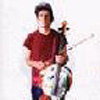 Hot on the heels of Soul Jazz's The World of Arthur Russell, Audika Records releases Calling Out of Context, the first in a projected three volumes chronicling Russell's work throughout the 1980s. Where The World of compiled the best of his avant-disco sides originally released limited pressings in NYC's disco heyday, Context offers a glimpse at Russell's unreleased work, culled from his vast private archive of recorded material.
Hot on the heels of Soul Jazz's The World of Arthur Russell, Audika Records releases Calling Out of Context, the first in a projected three volumes chronicling Russell's work throughout the 1980s. Where The World of compiled the best of his avant-disco sides originally released limited pressings in NYC's disco heyday, Context offers a glimpse at Russell's unreleased work, culled from his vast private archive of recorded material. Adam Pierce has evolved Mice Parade from its humble beginnings to a full-fledged accomplished live ensemble, a feat especially impressive given his other dealings in HiM, touring with M√∫m, and running Bubble Core. After the success and bombast of that experience, Pierce went back home and recorded another album mostly by himself, but he felt the need to incorporate his experiences on the road and some of his friends from other projects, culminating in the fantastic new work of Obrigado Saudade.
Adam Pierce has evolved Mice Parade from its humble beginnings to a full-fledged accomplished live ensemble, a feat especially impressive given his other dealings in HiM, touring with M√∫m, and running Bubble Core. After the success and bombast of that experience, Pierce went back home and recorded another album mostly by himself, but he felt the need to incorporate his experiences on the road and some of his friends from other projects, culminating in the fantastic new work of Obrigado Saudade.
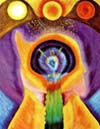 This release should arrive with a grain of sadness for, in January, Reynols disbanded after ten years of tireless activity. The prolific Argentine group spent the majority of this time in relative obscurity, forging ahead with large ambitions and an unflinching devotion to idiosyncratic craft that inevitably left them well-situated within the pantheon of frayed roots-rockers, brash experimenters, and psychedelic casualties. Their willingness to experiment with the most eccentric of concepts always made Reynols seem extra special, even among the small crop of similarly broad-minded collectives.
This release should arrive with a grain of sadness for, in January, Reynols disbanded after ten years of tireless activity. The prolific Argentine group spent the majority of this time in relative obscurity, forging ahead with large ambitions and an unflinching devotion to idiosyncratic craft that inevitably left them well-situated within the pantheon of frayed roots-rockers, brash experimenters, and psychedelic casualties. Their willingness to experiment with the most eccentric of concepts always made Reynols seem extra special, even among the small crop of similarly broad-minded collectives.

The Chicago Underground (whose members vary in number on their various releases) uses the malleable forms of jazz and electronic music to explore sounds and thoughts that could only be captured in the vistas of these boundless styles. Slon is an experiment in forms and styles, exploring the brassy expressionism of both genres to deliver a stirring display of meaning and intent through their inspired tones.
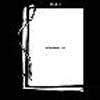 I was late discovering 2002's Thought for Food,The Books' gorgeous debut album of electro-acoustic sound collages.That album had a guileless charm, the songs seeming to form out ofnowhere, spilling accidentally out of a patchwork of crisply reproducedguitars, seemingly random voice samples, field recordings and otherunidentifiable sources. The laptop-treated melodies fell roughly intothe same category as Four Tet's Pause album, but with an earfor synchronicity and miniature sound events that reinforced theprimacy of randomness, rather than the rigidity of regular rhythms andmelody. It was a refreshing album that unpredictably alternated betweennostalgia, absurdity and ingenuity. The Lemon of Pink wasreleased last year, and I was once again late in giving it a listen.With this record, The Books display the same talent for collage andmelody, but I can't help but notice how calculated, and hence lessenjoyable this album seems compared to the relatively unaffected Thought for Food.The ideas also seem a little thinner on this outing, and the wonderfulspaciousness of the debut LP has been replaced by a cavalcade of derigeur clicks and glitches, overwhelming many of the songs. Nocomplaints with the first few minutes of the album's opening track,cycling as it does through a scrapbook of scratchy, recollective folkand bluegrass records, a woman phonetically intoning the nonsensetitle, and a hundred indeterminate snatches of sound. But after thispromising couple minutes, it all segues into a relatively tepid CatPower-esque guitar-folk ballad that is something of a letdown followingits kaleidescopic introduction. "Tokyo" utilizes samples from aJapanese airport along with its vaguely Eastern guitar plucking andviolin sawing, digitally spliced and looped to circumvent melodyentirely. It's a bit of an obvious tactic for The Books. "There is NoThere" suffers from editing overload, but still manages to be quitelovely, especially the pause at the song's center for a sampledescribing Gandhi's theory of non-violent protest. This transforms intoa rollicking banjo and guitar duet that is reminiscent of John Faheyaugmented by Jim O'Rourke's talent for laptop assemblage. The rest of The Lemon of Pinkis largely short song sketches and useless filler, making this alreadybrief album even lighter in content, more like an EP than afull-length. I suppose if I had heard this album outside the context ofThe Books previous work, I might have thought that it was a passablypretty work of indie-folktronica. But coming as it did from a band thatproduced such an impressive debut, The Lemon of Pink is a bit deficient.
I was late discovering 2002's Thought for Food,The Books' gorgeous debut album of electro-acoustic sound collages.That album had a guileless charm, the songs seeming to form out ofnowhere, spilling accidentally out of a patchwork of crisply reproducedguitars, seemingly random voice samples, field recordings and otherunidentifiable sources. The laptop-treated melodies fell roughly intothe same category as Four Tet's Pause album, but with an earfor synchronicity and miniature sound events that reinforced theprimacy of randomness, rather than the rigidity of regular rhythms andmelody. It was a refreshing album that unpredictably alternated betweennostalgia, absurdity and ingenuity. The Lemon of Pink wasreleased last year, and I was once again late in giving it a listen.With this record, The Books display the same talent for collage andmelody, but I can't help but notice how calculated, and hence lessenjoyable this album seems compared to the relatively unaffected Thought for Food.The ideas also seem a little thinner on this outing, and the wonderfulspaciousness of the debut LP has been replaced by a cavalcade of derigeur clicks and glitches, overwhelming many of the songs. Nocomplaints with the first few minutes of the album's opening track,cycling as it does through a scrapbook of scratchy, recollective folkand bluegrass records, a woman phonetically intoning the nonsensetitle, and a hundred indeterminate snatches of sound. But after thispromising couple minutes, it all segues into a relatively tepid CatPower-esque guitar-folk ballad that is something of a letdown followingits kaleidescopic introduction. "Tokyo" utilizes samples from aJapanese airport along with its vaguely Eastern guitar plucking andviolin sawing, digitally spliced and looped to circumvent melodyentirely. It's a bit of an obvious tactic for The Books. "There is NoThere" suffers from editing overload, but still manages to be quitelovely, especially the pause at the song's center for a sampledescribing Gandhi's theory of non-violent protest. This transforms intoa rollicking banjo and guitar duet that is reminiscent of John Faheyaugmented by Jim O'Rourke's talent for laptop assemblage. The rest of The Lemon of Pinkis largely short song sketches and useless filler, making this alreadybrief album even lighter in content, more like an EP than afull-length. I suppose if I had heard this album outside the context ofThe Books previous work, I might have thought that it was a passablypretty work of indie-folktronica. But coming as it did from a band thatproduced such an impressive debut, The Lemon of Pink is a bit deficient. I sometimes catch myself slipping into label worship, a dangerous andinfrequent indulgence, but one that has yet to free my covetous eyefrom anything bearing the Rune Grammofon stamp. The Norwegian labelcelebrated its 30th release last year with this double-CD/book, actingnot so much as a retrospective, but more as an attempted rounding-outof the label's focus, a condensed look at what the past has produced,and what the future holds. Reading through Money Will Ruin Everything,I am immediately reminded of the many labels where such a release wouldbe long overdue. Founder Rune Kristoffersen cites Tzadik, 4AD, Factory,ECM, and Blue Note as inspirations, and there can be no denying thatGrammofon's consistency of presentation, commitment to quality, and itseffected grouping of a variety of artists, under one vaguely-definedethos, find much in common with those older, iconoclastic imprints. Therisk in releasing something like Money, especially so early ina label's life, is an over-confidence, a presumptuousness surroundingone's accomplishments thus far, and the possibility of thesepresumptions, proven or not, having a negative effect on futureprojects. Money is quick to address these concerns in itstitle, a cheeky flirtation with the idea of book as a sell-out, andlater inside, as the title page is preceded by the inscription: "Thisbook is a record cover." The effort to make the book seem like merelyan expanded sleeve is clear throughout; a great number of pages aredevoted to Kim Hiorthøy's beautiful design work, the hallmark forGrammofon discs and the undoubted cause of many introductions to thelabel. The pages include detailed examinations of each Hiorthøy sleevedesign, making clear the individuality of every release within thelarger schema, and making Money seem much more like an artbookthan an attempt to venerate the label's five-year past. The book evencontains an essay devoted to the designer's contributions, and thoughthe text brings comparisons to legends like Barney Bubbles and PeterSaville, these names do not feel far off after exposure to Hiorthøy'sbody of work, which perfectly suits the colorful character of theGrammofon catalog. The great variety and quality of the label's musicare the real focal points of the book and refuse to be compromised by Wireeditor Rob Young's introductory essay or the printed interview withKristoffersen. The owner's diplomatic words actually conclude Moneynicely, describing the release as "just a signpost in the road," aclaim that is perfectly supported by the music on the two discs, allexclusive and including substantial contributions from almost everyRune artist and a number of excellent tracks from otheryet-to-be-released members of the blossoming Norwegian scene (mostnotably music from Maja Ratkje's new Fe-mail project, new signingSusanna And The Magical Orchestra, and a brilliant track by Hiorthøyhimself). A crystalline, Nordic cool can be found in just abouteverything on Kristoffersen's label, but all easy comparisons endthere. The curating founder's tastes lie in the most shadowy andgrittiest of improv (Supersilent, Scorch Trio), in the most lulling andapproachable of experimental electronic (Skyphone, Alog), andeverywhere in between, grazing pristine folk (Tove Nilsen), shuddering,skeletal techno (Svalastog), and the unclassifiable music of MajaRatkje and Spunk, who seem to blur the lines between noise andchildhood. Perhaps the unifying characteristic of all Rune Grammofonmusic is that everything, given time, feels capable of deeply personalinvestment. There is a very unique immediacy to these artists' musicthat looks inward toward the same "enchanted domain" that essayistAdrian Shaughnessy describes in Hiorthøy's art, making it impossible todescribe Rune music without touching on all the spectral degrees,frequency shifts, and, as Rob Young says, the "subtle colour shading"that indicate a life lived, complex, radiant, and full of surprises. Moneyoffers little more than this; it is a celebration of what every Runerelease celebrates, and the perfect introduction to a label that hasyet to stop short of its own high standards.
I sometimes catch myself slipping into label worship, a dangerous andinfrequent indulgence, but one that has yet to free my covetous eyefrom anything bearing the Rune Grammofon stamp. The Norwegian labelcelebrated its 30th release last year with this double-CD/book, actingnot so much as a retrospective, but more as an attempted rounding-outof the label's focus, a condensed look at what the past has produced,and what the future holds. Reading through Money Will Ruin Everything,I am immediately reminded of the many labels where such a release wouldbe long overdue. Founder Rune Kristoffersen cites Tzadik, 4AD, Factory,ECM, and Blue Note as inspirations, and there can be no denying thatGrammofon's consistency of presentation, commitment to quality, and itseffected grouping of a variety of artists, under one vaguely-definedethos, find much in common with those older, iconoclastic imprints. Therisk in releasing something like Money, especially so early ina label's life, is an over-confidence, a presumptuousness surroundingone's accomplishments thus far, and the possibility of thesepresumptions, proven or not, having a negative effect on futureprojects. Money is quick to address these concerns in itstitle, a cheeky flirtation with the idea of book as a sell-out, andlater inside, as the title page is preceded by the inscription: "Thisbook is a record cover." The effort to make the book seem like merelyan expanded sleeve is clear throughout; a great number of pages aredevoted to Kim Hiorthøy's beautiful design work, the hallmark forGrammofon discs and the undoubted cause of many introductions to thelabel. The pages include detailed examinations of each Hiorthøy sleevedesign, making clear the individuality of every release within thelarger schema, and making Money seem much more like an artbookthan an attempt to venerate the label's five-year past. The book evencontains an essay devoted to the designer's contributions, and thoughthe text brings comparisons to legends like Barney Bubbles and PeterSaville, these names do not feel far off after exposure to Hiorthøy'sbody of work, which perfectly suits the colorful character of theGrammofon catalog. The great variety and quality of the label's musicare the real focal points of the book and refuse to be compromised by Wireeditor Rob Young's introductory essay or the printed interview withKristoffersen. The owner's diplomatic words actually conclude Moneynicely, describing the release as "just a signpost in the road," aclaim that is perfectly supported by the music on the two discs, allexclusive and including substantial contributions from almost everyRune artist and a number of excellent tracks from otheryet-to-be-released members of the blossoming Norwegian scene (mostnotably music from Maja Ratkje's new Fe-mail project, new signingSusanna And The Magical Orchestra, and a brilliant track by Hiorthøyhimself). A crystalline, Nordic cool can be found in just abouteverything on Kristoffersen's label, but all easy comparisons endthere. The curating founder's tastes lie in the most shadowy andgrittiest of improv (Supersilent, Scorch Trio), in the most lulling andapproachable of experimental electronic (Skyphone, Alog), andeverywhere in between, grazing pristine folk (Tove Nilsen), shuddering,skeletal techno (Svalastog), and the unclassifiable music of MajaRatkje and Spunk, who seem to blur the lines between noise andchildhood. Perhaps the unifying characteristic of all Rune Grammofonmusic is that everything, given time, feels capable of deeply personalinvestment. There is a very unique immediacy to these artists' musicthat looks inward toward the same "enchanted domain" that essayistAdrian Shaughnessy describes in Hiorthøy's art, making it impossible todescribe Rune music without touching on all the spectral degrees,frequency shifts, and, as Rob Young says, the "subtle colour shading"that indicate a life lived, complex, radiant, and full of surprises. Moneyoffers little more than this; it is a celebration of what every Runerelease celebrates, and the perfect introduction to a label that hasyet to stop short of its own high standards.- Kim HiorthøyWait
- Fe-mailJacob's Leketøy
- Andreas MelandEplesky



